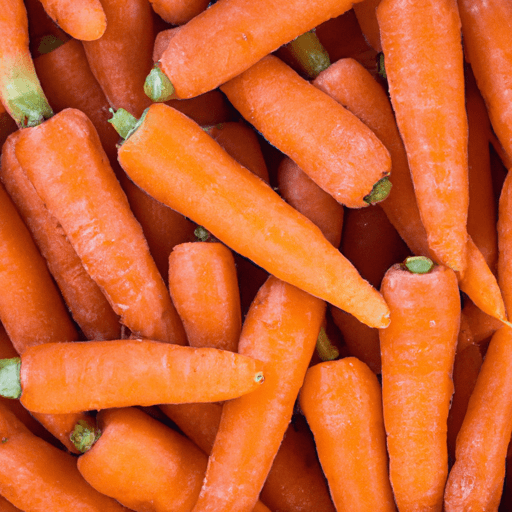The Amazing World of Baby Cut Carrots
When it comes to convenient and nutritious snacks, few things can compete with the ever-popular baby cut carrots. These little bites of goodness are not only delicious, but they also come packed with essential nutrients. Today, we will take a closer look at what makes baby cut carrots so special, from their taste to their fascinating history.
Taste and Texture
Baby cut carrots have a crisp and tender texture that is simply irresistible. Their vibrant orange color is not only visually appealing but also indicative of their sweet and slightly earthy flavor. When you bite into a baby cut carrot, you’ll experience a refreshing juiciness that adds to the overall taste experience.
Versatile in the Kitchen
In addition to being an excellent standalone snack, baby cut carrots are incredibly versatile in the kitchen. They can be used in both raw and cooked preparations, making them a staple ingredient in many recipes.
One common way to enjoy baby cut carrots is to include them in fresh salads and slaws, where their natural sweetness adds a delightful crunch. They can also be steamed, roasted, or sautéed to create a burst of flavor in stir-fries, side dishes, or even as a healthy addition to stews and soups.
Nutritional Powerhouses
Baby cut carrots may be small, but they pack a nutritional punch. They are an excellent source of beta-carotene, which your body converts to vitamin A. Vitamin A is vital for maintaining healthy vision, boosting the immune system, and promoting cell growth.
These miniature carrots are also a good source of dietary fiber, which aids in digestion and helps you feel fuller for longer. Plus, they contain an array of essential nutrients, such as vitamin K, vitamin C, potassium, and folate, making them a nutritious addition to any meal or snack.
From Field to Finger
Do you know how baby cut carrots came to be? Their conception is quite fascinating. Originally, these convenient snacks were not naturally occurring. In the early 1980s, a California farmer named Mike Yurosek faced a problem: imperfectly shaped, broken, and misshapen carrots that consumers often disregarded.
To minimize waste and maximize consumer appeal, Yurosek decided to experiment with cutting the oddly shaped carrots into bite-sized pieces. The result was a game-changer. The baby cut carrot was born, and today it is widely loved and enjoyed by people of all ages.
Fun Fact
Here’s a fun fact: not all baby cut carrots are actually “babies.” Baby cut carrots can be made from mature carrots that are simply cut into smaller, uniform pieces. So the next time you enjoy these tasty treats, you might be eating a fully grown carrot in disguise!
So there you have it – the blissful world of baby cut carrots. From their delightful taste and versatility in cooking to their nutritional benefits and surprising background, these little carrots are a true treasure. Whether you enjoy them raw or incorporate them into your favorite recipes, baby cut carrots are a fantastic addition to a healthy and flavorful lifestyle.
Baby Cut Carrots
Origin: Baby cut carrots were first popularized in California in the 1980s by a farmer named Mike Yurosek. Yurosek invented a way to take misshapen or broken carrots and turn them into small, smooth, and uniform pieces, which later became popular as baby cut carrots.
Common Uses: Baby cut carrots are often used as a convenient and healthy snack, either eaten raw or paired with dips. They are also commonly used in salads, stir-fries, soups, and stews. Due to their small size and consistent shape, they are favored for their ease of use in recipes.
Nutritional Benefits: Baby cut carrots are a nutritious choice, providing a variety of vitamins and minerals. They are a good source of vitamin A, which is important for vision health, immune function, and cell growth. They also contain dietary fiber, potassium, and vitamin K. Carrots are known for their beta-carotene content, which is a precursor to vitamin A.
Unique Properties: Baby cut carrots are often washed and processed before packaging, which may reduce their overall nutrient content compared to whole, unprocessed carrots. The outer layer of baby cut carrots is often removed, which can result in loss of some antioxidants and dietary fiber found in the skin of whole carrots. However, baby cut carrots still offer a convenient and healthy option for consumption.
Historical Significance: Baby cut carrots have had a significant impact on the carrot industry. Yurosek’s invention transformed the way carrots were marketed and consumed, popularizing the concept of bite-sized, ready-to-eat carrots. Today, baby cut carrots make up a significant portion of carrot sales in many countries, and their popularity continues to grow.




Use the share button below if you liked it.
It makes me smile, when I see it.